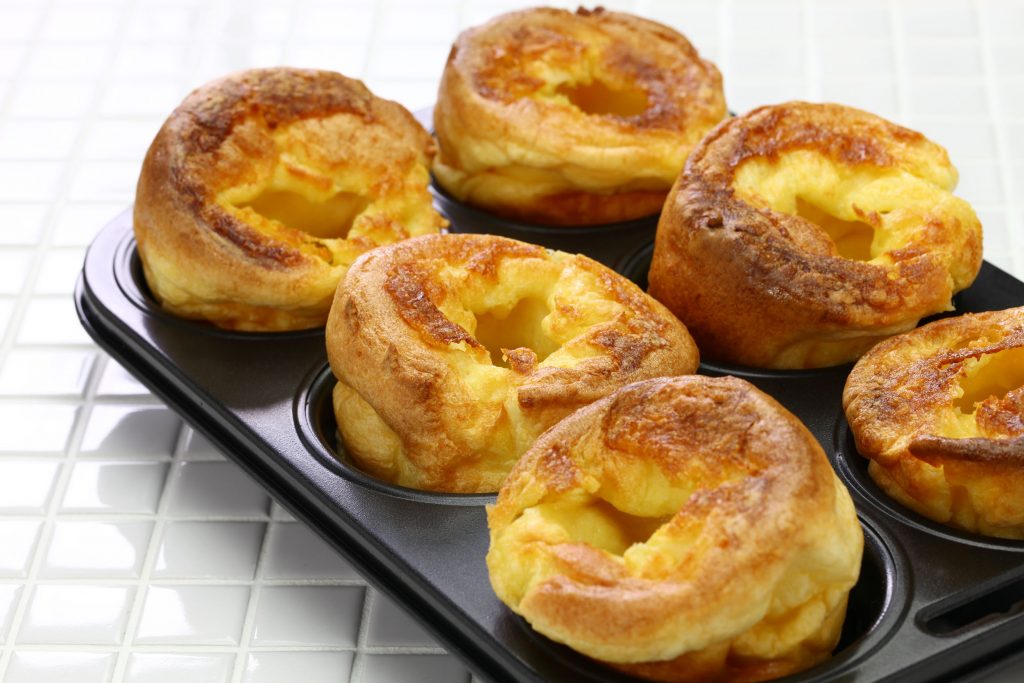The story begins hundreds of years ago and in true fairy tale fashion, we begin with Once Upon a Time…
Robust and lovely wheat flour began to come into common use for making cakes and puddings. Cooks in the North of England devised a plan to change the course of cookery FOREVER! They began making use of the fat from the dripping pan to cook a batter pudding while the meat roasted in the oven. Scandalously genius!
In 1737, the first recipe for “dripping pudding” was published in The Whole Duty of a Woman. This was a guide for the fairer sex with rules, directions, and observations for a lady’s conduct and behavior.
The topic of a lady’s love life was included with tips for married, single, and even divorced women! Talk about scandalously genius. Where can we get our hands on a copy??
The book was surely a huge success, right? The important thing here though is that recipe for “dripping pudding.” It was fairly simple – make a good batter as for pancakes, put in a hot toss-pan over the fire, add a bit of butter to fry the bottom a little, then put the pan instead of a dripping pan and under a shoulder of mutton, shake it frequently and it will be light and savory. When the mutton is done, turn it in a dish and serve hot.
In 1747, Hannah Glasse shook up the recipe with her own version in The Art of Cookery Made Plain and Simple. Forget Nigella, Glasse was the original domestic goddess! Glasse re-invented and re-named the dripping pudding, which had been cooked in England for centuries although the puddings were much flatter than the puffy versions known today.
Then in 2008, the Royal Society of Chemistry got involved when it declared that “A Yorkshire pudding isn’t a Yorkshire pudding if it is less than four inches tall.” This came about when Ian Lyness, an Englishman living in the Rockies experienced a series of Yorkshire pudding “flops” in the high country despite huge successes in the low country. It is no myth – the rise is just not the same at certain altitudes! Pretty crazy when you can quite obviously cook perfect pudds atop the Pennines.
That aside, Yorkshire Pudding is still a staple of the British Sunday lunch and in some cases is eaten as a separate course prior to the main meat dish. This is the traditional way to eat the pudding and is still common in parts of Yorkshire today. There is a reason for this too.
Because the rich gravy from the roast meat drippings was used up with the first course, the main meat and vegetable course was often served with a parsley or white sauce. This was a cheap way to fill diners, thus stretching the use of more expensive ingredients since the Yorkshire pudding was served first. Should you wish to tighten those purse strings, this is one way to do it.
If you’re anything like us though, you like to load your plate with all the trimmings – Yorkshire included, so forget the other two courses! If, after all of that, you are ready for dessert, do like we do in some areas of Yorkshire and fill the pudding with jam, or as a “pudding” in the true sense, try jam and ice cream.
As a final note, Chemical scientist and author John Emsley, of Yorkshire, believes that the ability to make good pudds is “in the blood and instinct of people born and raised [in Yorkshire].”


